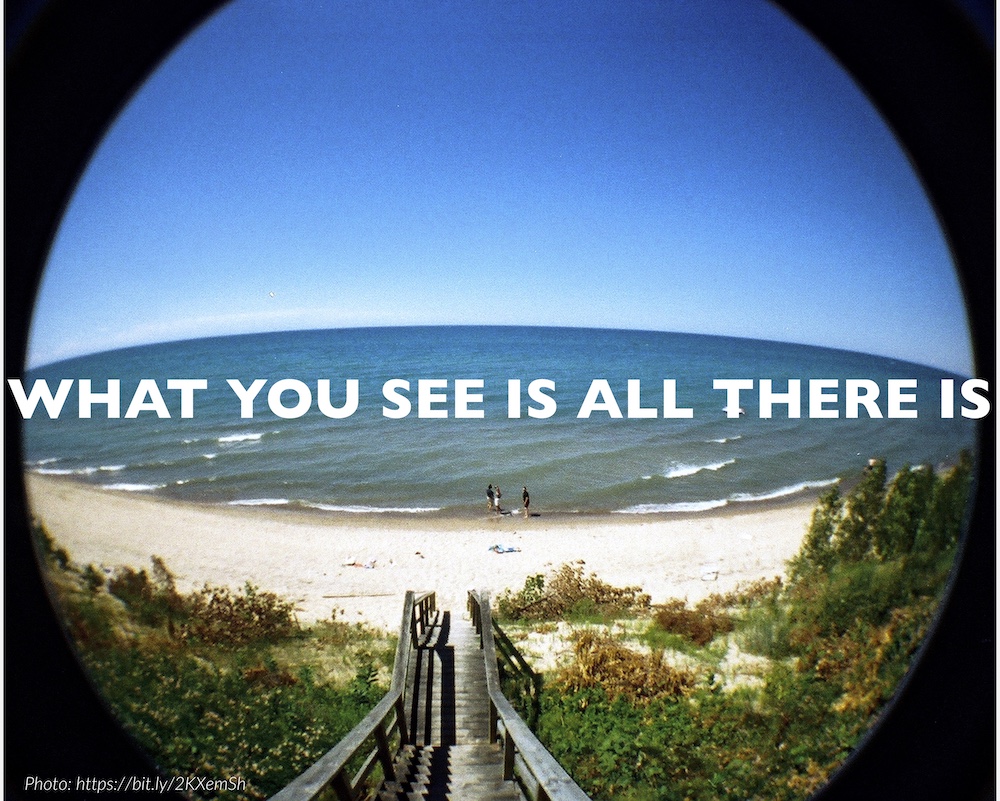The latest brouhaha in the never-ending saga of Analyzing Human Behavior is Not Compatible with the Scientific Method is that of Dan Ariely. The behavioral economist and bestselling author of books like Predictably Irrational: The Hidden Forces That Shape Our Decisions has been accused of fabricating data on a paper about dishonesty. I mean, really.
Really.
Come on.
Seriously.
There’s a great overview of the whole thing on my new favorite Substack, Experimental History. Of Ariely, he writes: “he’s famous for his work on irrationality, which you could charitably summarize as “humans deviate from the rules of rationality in predictable ways,” or you could uncharitably summarize as “humans r pretty dumb lol.”
For the fabricated study in question, Ariely & coauthor Francesca Gino tweaked car 13,000 insurance forms that asked policyholders to report their mileage. Allegedly, when people signed an honesty pledge at the beginning of the form, they were more truthful than when they signed that statement at the end of the form.
It made a good story and came with a good name, so it got published.
Alas, the whole thing was a sham and gobs of the data were false.
So false, apparently, that they didn’t even bother to use the same font for the new faux data, the numbers necessary to further their pre-existing narrative.1It’s yet another reason why we shouldn’t believe academics: their entire career becomes the unfolding of a single narrative. “The file drawer problem” refers to the fact that any data that doesn’t fit a researcher’s preferred conclusion simply gets tossed out. All of this invisible data is legion. Let’s now start to think of most peer-reviewed scientific journals as “Instagram Feeds of Academics Sponsored by Universities,” only showing us the stuff that users have decided should be shared, all of it made pretty with enough filters to sit just at the intersection of reality and what someone wants reality to be.
But I digress.
What is rationality?
Rationality, Ariely’s main obsession, is a judgment about someone’s behavior, namely that they are not acting in their best interests.2But remember, of course, that Ariely makes up a lot of stuff, which—for a scientist—might be considered irrational, primarily because of the permanent scar on your reputation.
It depends, of course, on how you’re measuring irrationality. If your main concern is to be honest, then his behavior wasn’t kosher.
If your main concern is to get published at any cost, to be an academic superstar even if that means being deceitful, then his behavior makes perfect sense.
So what, then, are we to make of the way that most behavioral economists judge rationality?
Repeat after me: the human brain is not a computer. Thinking is costly. It takes energy. We have a biological imperative to complete our tasks efficiently. Being “irrational” and falling victim to cognitive biases are the inevitable result of having a biological control center that emphasizes information in its immediate environment.

It shouldn’t be a shocker as to why: throughout 99% of evolution, this was it. Whatever was right in front of you was your world, the only information worth attending to. You weren’t comparing measurements or pricing wines or doing little optical illusions, you were simply trying your best not to die.
If your social group hated you, you’d get kicked out and die. Other people’s opinions are what turn subjectivity into objectivity. Is something a fact really just depends on how many other people say that something is a fact. It was once a fact that the earth was the center of the universe. It was once a fact that having to wear my snow boots all day because I forgot my sneakers was the absolute worst thing to possibly happen to me. It was once a fact that I was the youngest person on earth. (And at one point, you were, too!) But the wisdom of time tells us not to seek scientific validity from the church, life lessons from 7 year-olds, and to accept the passage of time. And yet—at one time, these things were legit. What you see is all there is.
The concept of rationality has a long, complex history, serving as a benchmark for what is considered “normal” or “acceptable” behavior in various social contexts. It’s been employed as a form of social control, delineating who is considered capable of making reasoned decisions and who is not.
Irrationality may be the insanity of our era, a way of exerting social control by shaming anyone who dares to have a brain that does not mimic a computer set to maximize profit. Just as the dominant discourse on work is set by lucky workaholics, the dominant discourse on rationality is set by narcissistic dicks: economists who insist that they know precisely how humans should behave.
Want to drive across town to save a few bucks? Irrational, the behavioral economists say. Clearly, this is a discipline suffering from founder effects.
And with that, some background: In 1954, evolutionary biologist Ernst Mayr developed the idea of founder effects to explain the emergence and persistence of variation among groups. When a small group of a species breaks apart from a larger group, any small differences within the original population are repeated throughout future generations—differences between that smaller group gets magnified.
In a classic example, Tristan da Cunha—an island in the middle of the Atlantic Ocean, far removed from mainland continents, was settled by a group of British in 1814, one of whom carried a gene for retinitis pigmentosa. Today, the inhabitants of that island, ancestors of the original settlers, are 10 times more likely to have retinitis pigmentosa than the general population. 3E.A. Thompson. “Ancestral Inference. II. The Founders of Tristan da Cunha.” Annals of Human Genetics 42 (1978): 239-253. Biological founder effects can exist, but humans differ by cultural and social norms: what everyone else around us is doing. We’re more adept at picking up social cues and following orders, things that allow for the speedy transmission of knowledge and group living. Compared to other kinds of knowledge, people show a robust bias in their ability to remember social norms, specifically norms about other people.4Hannes Rakoczy, Felix Warneken, and Michael Tomasello. “The Sources of Normativity: Young Children’s Awareness of The Normative Structure of Games.” Developmental Psychology 44, no. 3 (2008): 875-881. Joshua W. Buckholtz. “Social Norms, Self-Control, and the Value of Antisocial Behavior.” Current Opinion in Behavioral Sciences 3 (2015): 122–129. Rick O’Gorman, David Sloan Wilson, and Ralph R. Miller. “An Evolved Cognitive Bias for Social Norms.” Evolution and Human Behavior 29 (2008): 71–78. Alex Mesoudi, Andrew Whiten, and Robin Dunbar. “A Bias for Social Information in Human Cultural Transmission.” British Journal of Psychology 97 (2006): 405–423. Robin Dunbar, N.D.C. Duncan, and A. Marriott. “Human Conversational Behavior.” Human Nature 8 (1997): 231–246. Knowing how we’re supposed to act is in our bones because it helps keep us all on the same page. Group living: it’s our survival mechanism. Like most standout traits, it’s both our biggest asset and downfall.
Capitalism is in our bones
The biggest plague in popular business/science discourse today is the complete enmeshment of behavioral dictums with capitalism. Economics, set to maximize profit and value—set to hone in on whatever they can compare and quantify—says that we’re irrational when we use the information in front of our face.
When we’re swayed by our environment. By people. By the most recent information we have on hand.
Lemme let you in on an open secret in behavioral science: YOU CAN ALWAYS PROVE SOMEONE WRONG. Once you know enough of the literature, you can back up whatever goddamn hunch you have, as long as you’re selective about your sources.
Never mind the fact that humans are more sensitive to relative than absolute changes. 25% off means something: it means you’ll drive across town, in part, because economists have historically failed to quantify the thrill of getting a great deal. Can we quantify that? Is there a variable involved? What if you’re lower-middle class and really need that deal?
If you can’t understand something
Imagine that there are real factors influencing someone’s behavior. Genuine ones. Ones that just happen to be unknown to you.
Don’t pretend that you know all of the reasons.
- 1It’s yet another reason why we shouldn’t believe academics: their entire career becomes the unfolding of a single narrative. “The file drawer problem” refers to the fact that any data that doesn’t fit a researcher’s preferred conclusion simply gets tossed out. All of this invisible data is legion.
- 2But remember, of course, that Ariely makes up a lot of stuff, which—for a scientist—might be considered irrational, primarily because of the permanent scar on your reputation.
- 3E.A. Thompson. “Ancestral Inference. II. The Founders of Tristan da Cunha.” Annals of Human Genetics 42 (1978): 239-253.
- 4Hannes Rakoczy, Felix Warneken, and Michael Tomasello. “The Sources of Normativity: Young Children’s Awareness of The Normative Structure of Games.” Developmental Psychology 44, no. 3 (2008): 875-881. Joshua W. Buckholtz. “Social Norms, Self-Control, and the Value of Antisocial Behavior.” Current Opinion in Behavioral Sciences 3 (2015): 122–129. Rick O’Gorman, David Sloan Wilson, and Ralph R. Miller. “An Evolved Cognitive Bias for Social Norms.” Evolution and Human Behavior 29 (2008): 71–78. Alex Mesoudi, Andrew Whiten, and Robin Dunbar. “A Bias for Social Information in Human Cultural Transmission.” British Journal of Psychology 97 (2006): 405–423. Robin Dunbar, N.D.C. Duncan, and A. Marriott. “Human Conversational Behavior.” Human Nature 8 (1997): 231–246.
